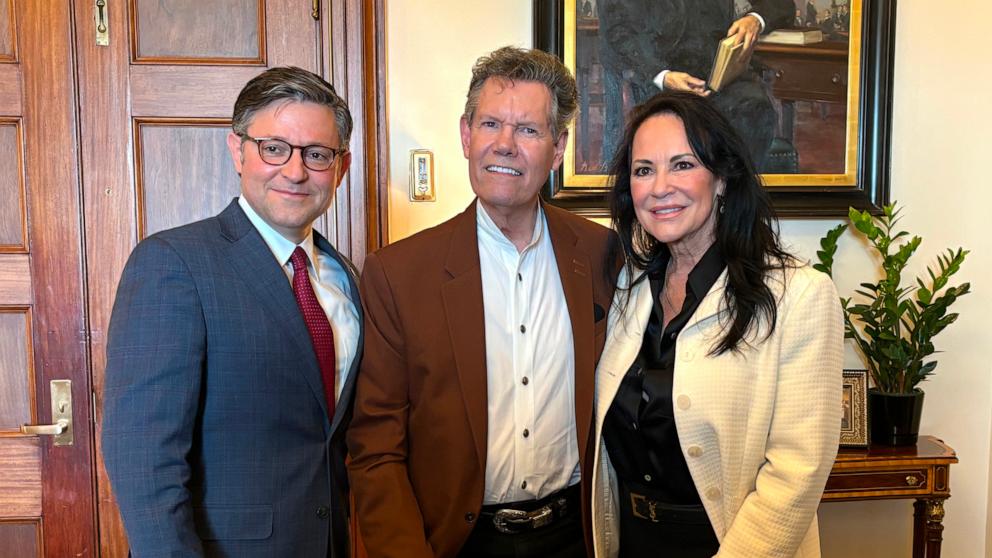Randy Travis and his wife Mary talk about the country singer’s AI music comeback and the American Music Fairness Act

“Forever and Ever, Amen” singer Randy Travis and his wife Mary Travis met with lawmakers and testified on Capitol Hill on Wednesday about the American Music Fairness Act (AMFA).
As the “wife and voice” of her husband, who has aphasia and cannot speak, Mary Travis testified in DC about why AMFA is important.
“What would notes sound like without a voice and what would the radio sound like without a song?” she said. “This bill is essential to fixing a centuries-old problem that affects artists and the lack of payment for the work they do on America’s most iconic music platform – a platform they helped build and sustain.”
AMFA, a bipartisan bill, aims to ensure that music creators are fairly compensated when their songs are played on AM/FM radio.
The radio stations argue that the new performance fees would put many radio stations at financial risk because they would be forced to cut programming. In addition, the stations would be able to play less music and only the most popular songs.
Artists currently get paid on other platforms, including satellite, cable and internet, when their music is played – but not on the radio. Songwriters, on the other hand, get paid on all of the above platforms.
The bill is intended to help artists recoup the hundreds of millions of dollars in royalties they currently miss out on each year.
During her testimony, Mary Travis said she likes to call artificial intelligence “artistic intelligence” because it enabled her husband to release a new song while using the technology “in the most authentic and artistic way.”
In 2013, Randy Travis suffered a severe stroke, among other health problems, which left him with aphasia and the ability to perform and speak live.
Mary Travis said her husband’s song “Where That Came From” was “the first song ever recorded and released in a studio using AI with the full consent and participation of the artist.”
“This is good AI, but there is also bad – no, there is terrible – AI out there, and its proliferation is growing exponentially every day,” she added.
In an interview with “Good Morning America” that aired Thursday, Mary and Randy Travis sat down with ABC News’ Rachel Scott, and Mary Travis recalled how she felt when she heard her husband’s voice during the song.
“I might still cry just thinking about it,” she said.
Mary Travis also discussed with her husband the importance of voicing one’s opinion in the Capitol.
“Some changes need to be made, and Randy felt like he was the one chosen to make that happen,” she said, and her husband agreed.
She continued: “After his stroke, we are more dependent on royalties because he can’t tour anymore; he’s not touring anymore. That’s how the money was made because there are no more CD or album sales. So we are dependent on the royalties.”
At the Capitol, the couple also called for greater regulation of the use of AI and music.
On Monday, major record labels sued AI-based song producers for copyright infringement, claiming that artificial intelligence-based song generators Suno and Udio exploit recorded works.
Kristin Robinson, a senior editor at Billboard, spoke to GMA about the concerns this technology raises.
“The music industry is currently very concerned about the potential of various AI music companies scouring the internet for copyrighted material in order to train their AI models to produce music that directly competes with human artists,” Robinson said.
Mary Travis spoke about what she learned throughout the process, saying, “You learn that you can do a lot of things you never thought you could do. … This might be one of the most important things he does.”



